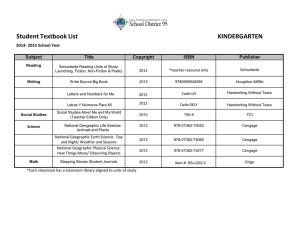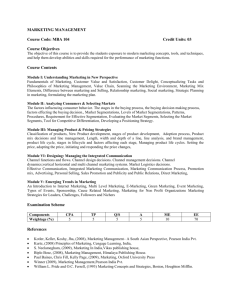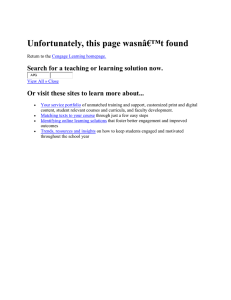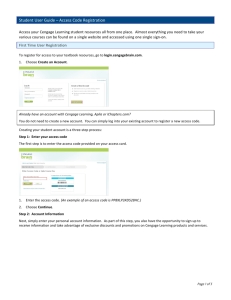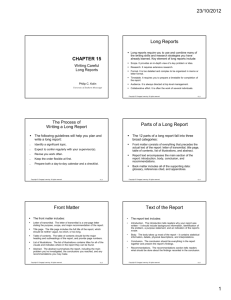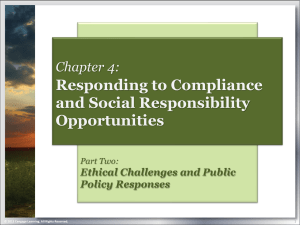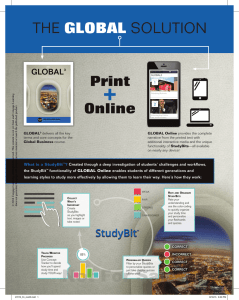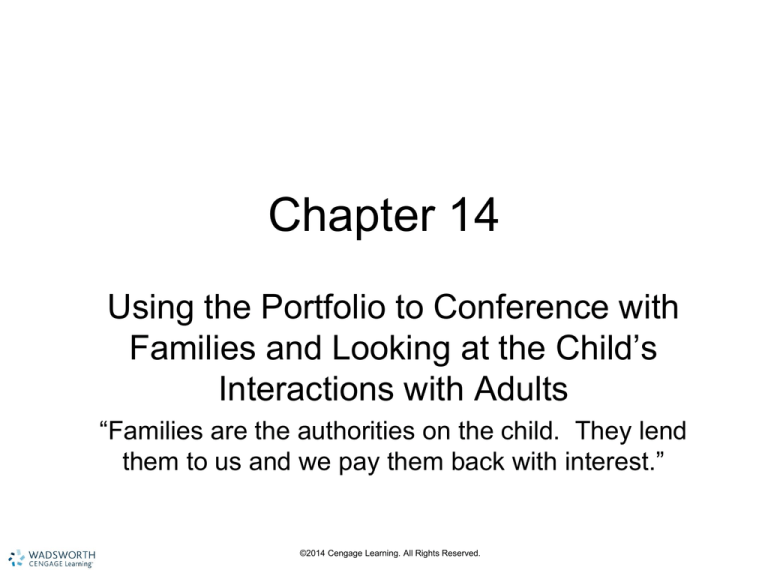
Chapter 14
Using the Portfolio to Conference with
Families and Looking at the Child’s
Interactions with Adults
“Families are the authorities on the child. They lend
them to us and we pay them back with interest.”
©2014 Cengage Learning. All Rights Reserved.
COMMUNICATION BETWEEN
HOME AND SCHOOL
• Daily contacts – “What to Do with It”
– Personal
– Descriptive
– Positive
• Ethical responsibilities to families
©2014 Cengage Learning. All Rights Reserved.
Written Communication
•
•
•
•
•
•
Family Handbook – Philosophy, policies
Newsletters – Events, sharing
Happy Notes – Individual successes
Documentation Panels – Project history
Technology – E-mail, Web site
Traveling Journals – Child/Family
involvement
• Progress Reports – Periodic updates of
development
©2014 Cengage Learning. All Rights Reserved.
PROGRESS REPORT −
CHILD STUDY
• Positive, descriptive, personal
• Review of all areas of development
• Substantiated by documents in the
portfolio
• Working on… Developmental Plan
• Basis for family conference or child/family
conference
©2014 Cengage Learning. All Rights Reserved.
What to Do with It
• Program policies may:
– Be given to family at the end of the year
– Go with child to next school or classroom
– Be kept by program
©2014 Cengage Learning. All Rights Reserved.
LOOKING AT THE CHILD’S
INTERACTIONS WITH ADULTS
• Prevention of difficulties
– Preparing the environment
– Realistic expectations
– Active listening
• Reaction and resolution of behavior
difficulties
– Possible cause
– Positive “can do” statements
©2014 Cengage Learning. All Rights Reserved.
TOPICS IN OBSERVATION:
Does the Week by Week Plan Meet NAEYC
Guidelines for Assessment?
1. Ethical principles guide
practice.
2. Instruments used as
intended.
3. Assessments appropriate for
age.
4. Instruments are in
compliance with profession.
5. Assessment is
developmentally significant.
6. Evidence is used to support
learning.
7. Evidence gathered in
naturalistic settings and real
performance.
8. Assessments use multiple
sources gathered over time.
9. Screening is always linked
to follow-up.
10. Use of tests is limited.
11. Staff and families are
knowledgeable about
assessment.
©2014 Cengage Learning. All Rights Reserved.
Helping All Children through
Home School Communications
• Children from Diverse Backgrounds
– Language interpretation
– Cultural awareness and competence
• Children with Special Needs
– Learn about different abilities
– Understand and follow IEP
– Work cooperatively with therapists
• Helping Professionals
©2014 Cengage Learning. All Rights Reserved.
Standard Related to
Informing Families
NAEYC Code of Ethical Conduct Principle 2.2
We shall inform families of program
philosophy, policies, curriculum, assessment
system, and personnel qualifications, and
explain why we teach as we do – which
should be in accordance with our ethical
responsibilities to children.
©2014 Cengage Learning. All Rights Reserved.

